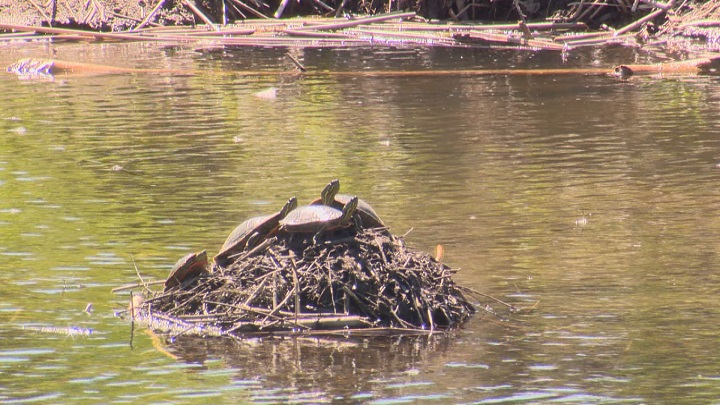All it takes is a nice sunny day and there are turtles as far as the eye can see at Elizabeth Hall Wetlands in Lethbridge’s river valley.

“We have noticed the population has grown quite a bit in the last few years, we went down a couple of weeks ago and someone did a count and we got 70 turtles,” Taylor Hecker with the Helen Schuler Nature Centre said.
When and how the reptiles got here, is leaving some shell-shocked.
“These particular turtles are native to the Milk River basin. We are not entirely sure how they got up here, whether it was somebody that brought them or that one turtle migrated a very far way. But they are not something you typically see around here,” Hecker added.
The turtles living in the wetlands area are called ‘painted turtles’ because you can see red coloration on their shells and underside.
For residents like Marie Lafournie, the turtles are her highlight at the wetlands, “You will just see them, they are up on boards and stuff like that and they come in different sizes, very small ones to the size of dinner plates, and they are really amazing to look at.”

Get daily National news
Hecker said turtles survive in the cold southern Alberta climate much like frogs.
“In the winter time the turtle won’t hibernate, but the metabolism will lower quite a bit. They burrow themselves in the mud and they will just go into a dormant state until the weather gets warm again and they come out,” Hecker said.
Slow and steady… turtles love to soak up the sun, so hot sunny days are the best time to see them lounging around.








Comments
Want to discuss? Please read our Commenting Policy first.